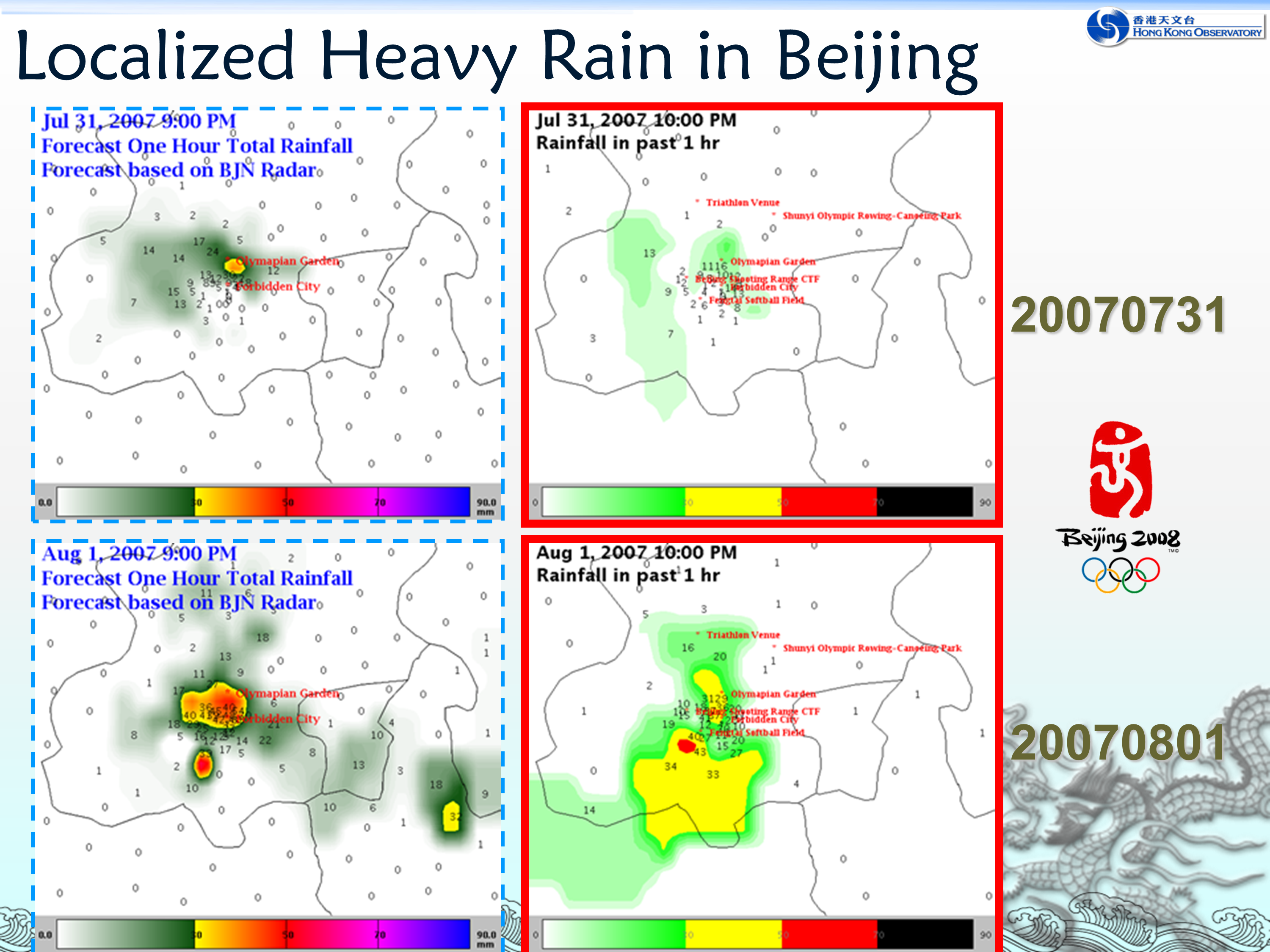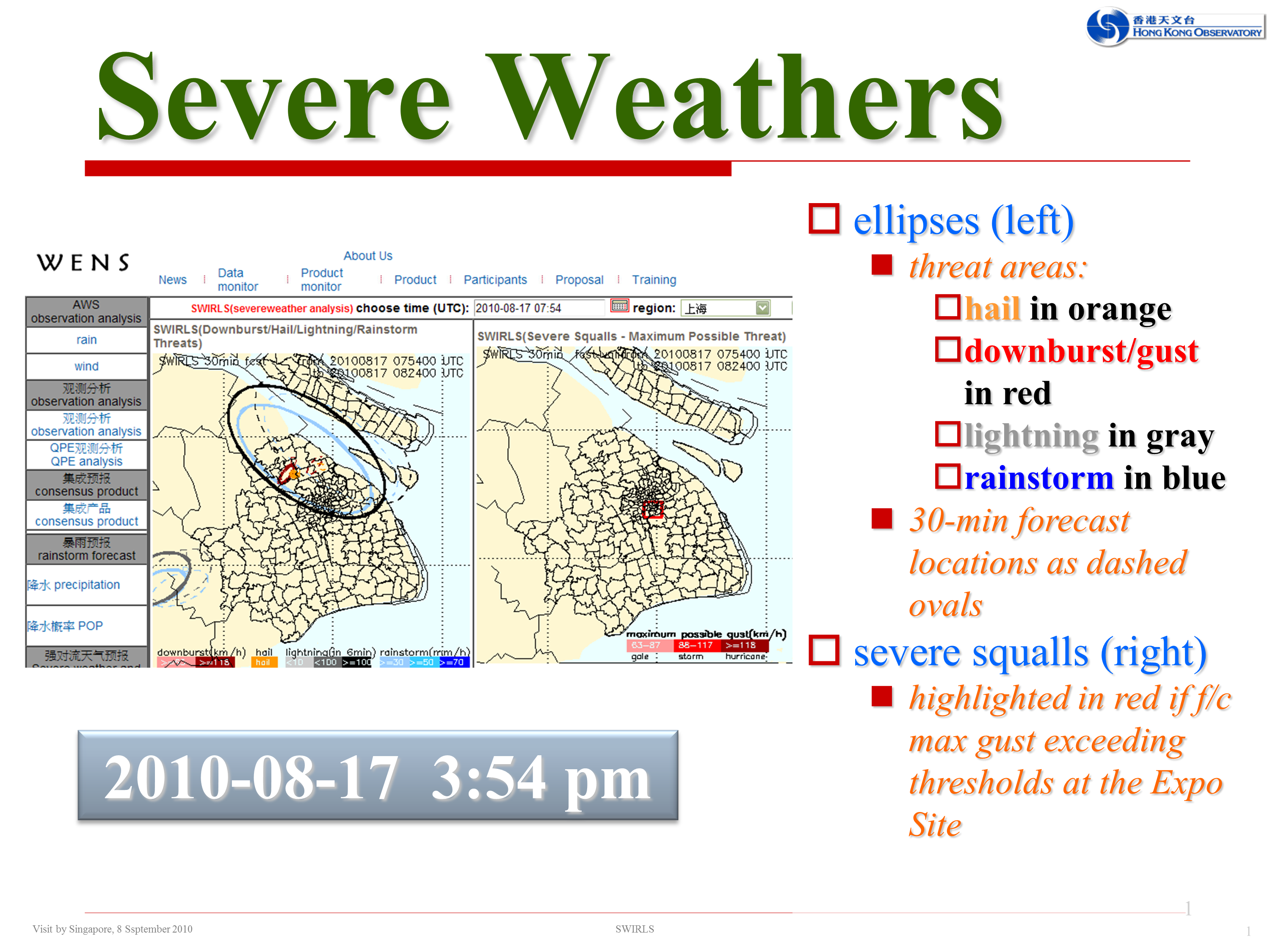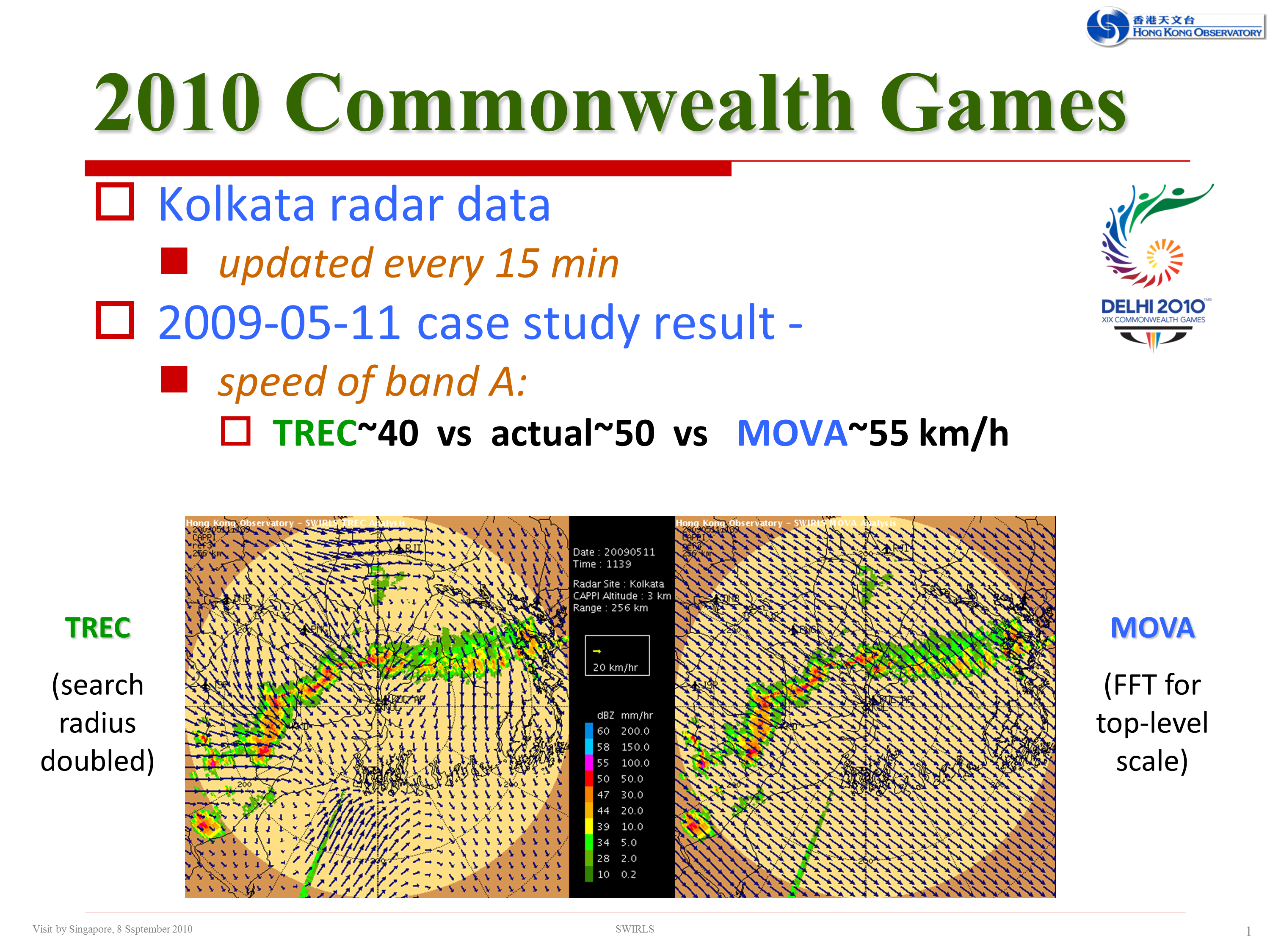Beijing 2008 Olympics
|
A World Meteorological Organisation (WMO) World Weather Research Program (WWRP) Forecast Demonstration Project (FDP) was conducted during the Beijing 2008 Olympics (B08FDP) to demonstrate the benefits of state-of-the-art nowcasting systems for mitigating high impact weather. A special version of SWIRLS was deployed for B08FDP in support of the 2008 Beijing Olympic Games. To meet the demands of B08FDP, SWIRLS was much enhanced for ingestion of conventional and remote-sensing observation data, execution of nowcasting algorithms, as well as generation, dissemination and visualization of products via different channels. New nowcasting techniques include:
• blending and combined use of radar-based nowcast and high-resolution NWP model analysis and forecast;
• detection and nowcasting of high-impact weather including lightning, severe squalls and hail based on conceptual models;
• grid-based, multi-scale storm-tracking method; and
• probabilistic representation of nowcast uncertainties arising from storm tracking, growth and decay.

An example of localized heavy rain in Beijing successfully forecast by SWIRLS.
Reference: Applications of the Hong Kong Observatory Nowcasting System Swirls-2 in Support of the 2008 Beijing Olympic Games
|
Expo 2010 Shanghai
|
WMO and China Meteorological Administration (CMA) implemented the World EXPO 2010 Nowcast Services Demonstration Project (WENS) with the goals of demonstrating how nowcasting applications can enhance short-range forecasts of high-impact weather using the opportunity afforded by the World EXPO 2010, as well as promoting the understanding and enhance the capability of WMO members in nowcasting services. SWIRLS participated in WENS and provided nowcasting services in Shanghai from May to October in 2010.

An example of hail, gust, lightning and rainstorm forecast by SWIRLS during WENS
Reference: 《小渦旋》臨近預報系統在2010上海世博會的應用" (in Chinese only)
|
2010 Commonwealth Games in Delhi
|
As a collaborative work between India Meteorological Department (IMD) and HKO, SWIRLS was adapted for use before and during the XIX Commonwealth Games held in Delhi, India in October 2010. It was operationalized and real-time products became available on IMD's website.

An example of radar echo tracking by two algorithms, the correlation-based TREC and the optical-flow-based MOVA, both as part of SWIRLS for the XIX Commonwealth Games
Reference: Use of SWIRLS nowcasting system for quantitative precipitation forecast using Indian DWR data
|

